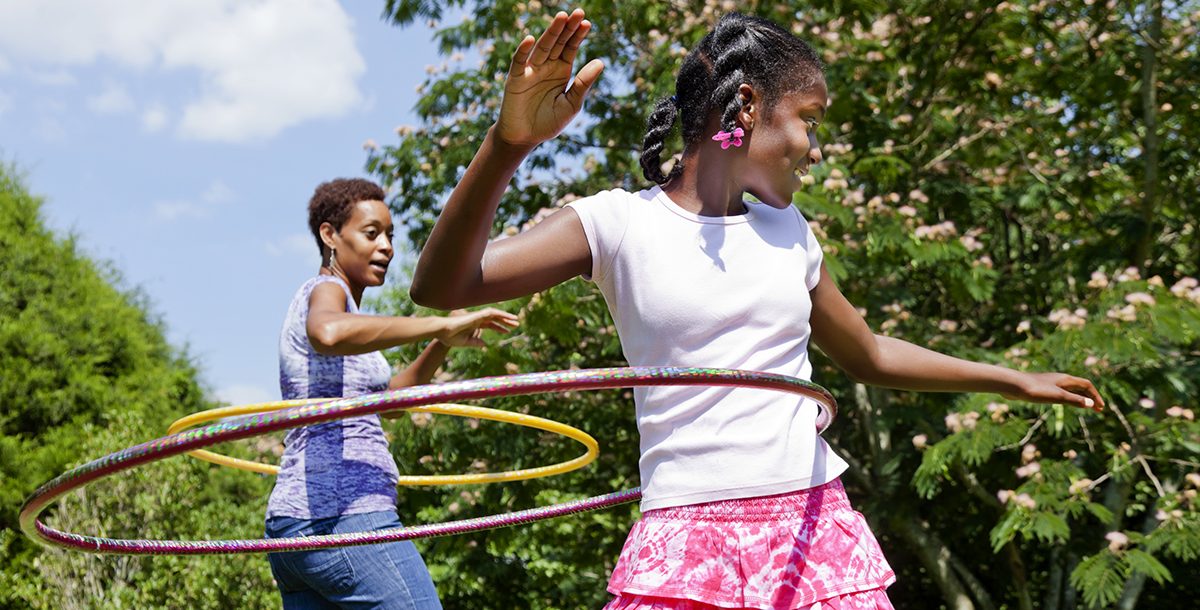The COVID-19 pandemic has been stressful for adults, but it’s also taking a toll on our kids.
Since being sent home from school early this year, the lives of most children haven’t been the same. Most are no longer regularly seeing their friends, some of their after-school activities have been cancelled and they are now spending most of their time at home. Even with the new school year starting, it is still a time of uncertainty.
If a child isn’t old enough to understand what is happening, they still recognize that their normal routine has been disrupted. And if they do understand what’s going on, they may be scared and overwhelmed.
As your kids are learning to cope with the COVID-19 crisis, there are many things you can do to help ease their fears.
Be available to talk
More than anything else, being able to talk to your child, listen to their concerns and answer their questions is so important.
Kids may read rumors online. They may know someone who is sick. They also may not understand words and phrases like “quarantine” and “social distancing.” Your job is to remain calm, be honest and explain everything in a way that makes sense to them.
Turn off the news
It’s probably a good idea to turn off the news and limit how much time your children spend online during the pandemic. Even adults can become overwhelmed by nonstop media coverage. Kids may not understand what they’re hearing and become scared.
Show your child the safety measures you’re taking
If your children are afraid of getting COVID-19, reassure them by showing what you’re doing to keep your family safe. Explain how important it is to wash your hands. If they are over two years old, be sure your child has face masks to wear when you go out in public. Stay home when possible. Continue healthy habits, like eating foods rich with vitamins and minerals and getting plenty of sleep.
Keep a schedule
With some kids home from school and one or more parents possibly working from home, your schedule might be much different than it was before the pandemic. But even when family members are home all day, it’s important to stick to a routine. Set aside a specific time for schoolwork and chores. Have dinner together every night. Try to go to bed at the same time each day. While you don’t have to keep a rigid schedule, your kids will do much better with some routine.
Get some exercise together
We know that exercise makes adults feel better, but as it turns out, it makes kids feel better too. It’s also a great way to strengthen your immune system.
If it’s safe to do so, go play at a park — but don’t forget social distancing — or go for a walk in your neighborhood. If you can’t leave your home, turn on some upbeat music and have a dance party. If you have a backyard, create an obstacle course or play in the sprinkler on hot days.
Get creative with home activities
Staying home without getting bored can be difficult for kids. It’s time to get creative with some new ways to entertain them.
Order some new games and have a family game night. Or you can have a family movie night once or twice a week. Create crafts and other artwork together or try some home science experiments. Consider learning a new skill together as a family, such as cooking, drawing or speaking a foreign language. Or, plant a garden.
If your kids are missing their friends, cousins or grandparents, set up time to video chat with them each week.
Find ways to help others together
Another way to help your kids feel better about what’s going on is to assist others who may be struggling through the pandemic. Send letters or pictures to a local nursing home to help spread some cheer. Find a church or community center that’s taking donations and find some items to give. Throw a drive-by birthday celebration for a relative who can’t have a party.
Above all else, don’t forget to have fun. We’re living in a serious time, but your children should feel safe and comfortable at home. If you’re truly worried about your children’s mental health at this time, consider reaching out to a behavioral health professional.
Stay updated on what Mercy Health is doing related to COVID-19.






